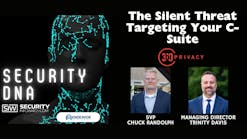The security guard industry has taken a lot of heat since the terrorist attacks of September 11, 2001. Accusations that security guards offer a false sense of security, guards lacking training for emergency situations, security breaches and on-duty guards serving without proper certification and background checks are all valid arguments to support the idea that security guards may not be the best solution in protection. But despite all the accusations, one thing is clear. Security guard companies are not going away.
“The security guard industry is not only here to stay, it will improve and grow,” said Laphonza Butler, national security campaign director for the Service Employees International Union. “The events of 9/11 have created the sense that America needs to be as safe as possible. People really feel and want the information and their personal properties to be as secure as possible.”
With expected growth rates to reach 17 percent by 2016, the Bureau of Labor Statistics estimates that there will be nearly 1.5 million guards in the U.S. by 2010, up from the estimated 1.1 million in 2000. Decreasing numbers of U.S. guards in the years after 9/11 only added to the misconception placed on security guard services. Although the number of guards between 1999 and 2003 fell by 11 percent, the trend does not identify what guards at which sites the data pertains to.
“I don’t see that the services industry has ever declined - I think that’s a little bit misleading,” said Don Walker, chairman, Securitas Security Services USA Inc. “There are periods of more rapid growth and than there are periods of less growth. I know that in the last 10 years there has been four to eight percent growth, so the industry in itself has not declined. What we are seeing is that the security industry has become more sophisticated and technology has taken a much larger piece of the total security picture, but the numbers of security officers has not declined.”
Another factor that adds to the misconception of the guard service industry is in defining the exact role of a security officer. Although security guards may perform similar duties, their specific tasks and role on the premises they are monitoring depends greatly on their training.
Although 29 states do not require any type of training for security guards, many companies require additional training for each guard they employ. Alaska requires the most number of training, at 48 hours, while California, Florida and Oklahoma follow with a 40-hour minimum training requirement.
“With the high-risk and medium-risk environments our guards secure, the training level required of the officers can be very extensive” said Robert Burns, senior vice president of The Wackenhut Corp, Palm Beach Gardens, Fla. “But the training can be far less for simplistic controlled access for lower-risk environments. Our officers in our custom protection division have to have law enforcement and/or military law enforcement experience, for which the training is extremely high. For us, customer specifics and environment-specific training is key.”
Many companies and businesses remain unconvinced that the 11,000 to 15,000 guard service companies in the U.S. alone can really serve as a solution for protection. For the IP video surveillance market, this is where technology steps in.
Companies and businesses are integrating all sorts of smart video surveillance and U.S. subsidiary RSI Video Technologies, provider of wireless security, is one firm breaking the mold.
“Normally in a CCTV system, you can go ahead and play the re-run of what was stolen from you yesterday,” said Keith Jentoft, president of RSI Video Technologies. “So what? The best cameras in the world don’t give you an idea of who the suspect is if the guy wears a hooded sweatshirt and keeps his face down. There are people who have had CCTV systems for decades and never had an apprehension. We fill a different gap.We alert someone in real time.”
For many of the leading security guard services, the idea is not just about putting a body in a uniform-protection is key.
“Both security guards and security surveillance are complimentary,”said Burns. “But someone still needs to monitor these cameras at a site. You can reduce the amount of monitoring with video analytics, but the signals received still require monitoring. Security personnel are the best solution to monitor cameras. Surveillance alone does not quite offer the deterrent that a CCTV system and a guard service can provide.”
With the additional support of the technological security surveillance sector, many guard service companies are moving forward to offer more than just a single solution approach.
“I think that it is critical that we are serious about the overall security imposture in America,” said Martin Herman, president of special response corporation and teamworks, The National Association of Security Companies, Alexandria, Va. “The events of 9/11 can happen again tomorrow-nobody wishes for that kind of scenario to happen again, but we need to be prepared.”

